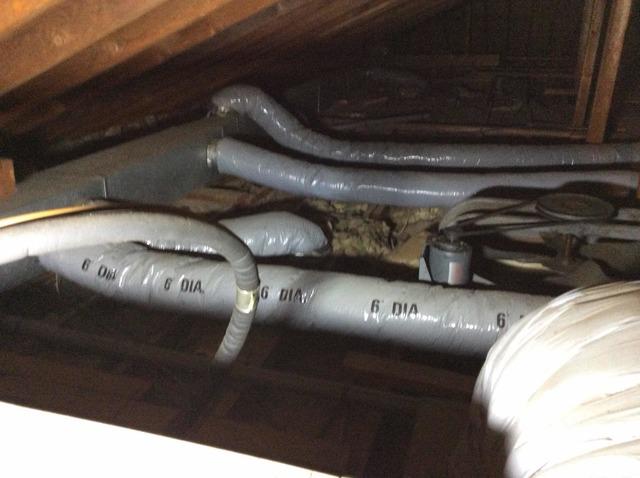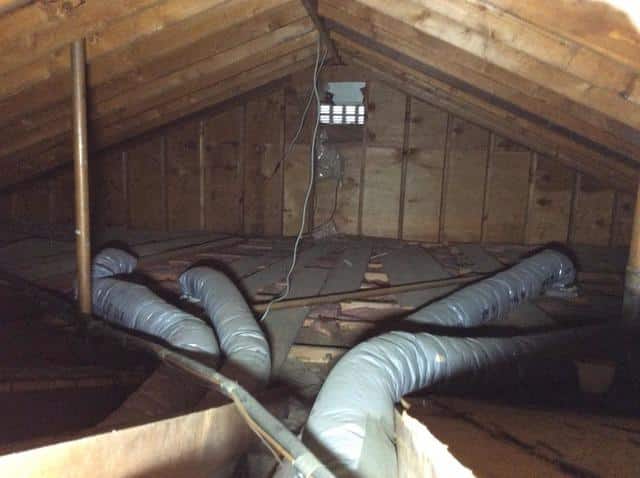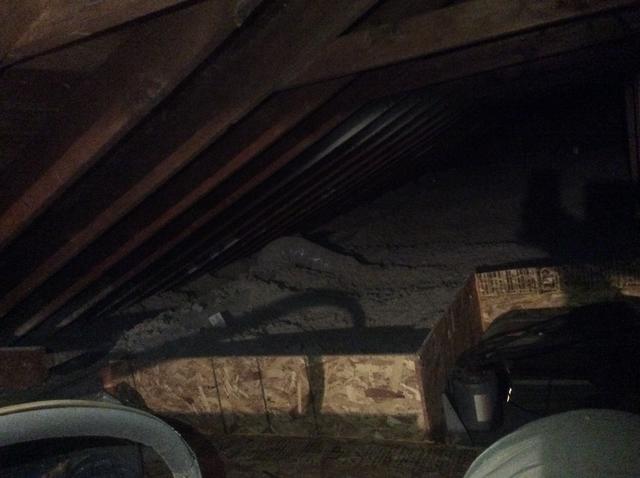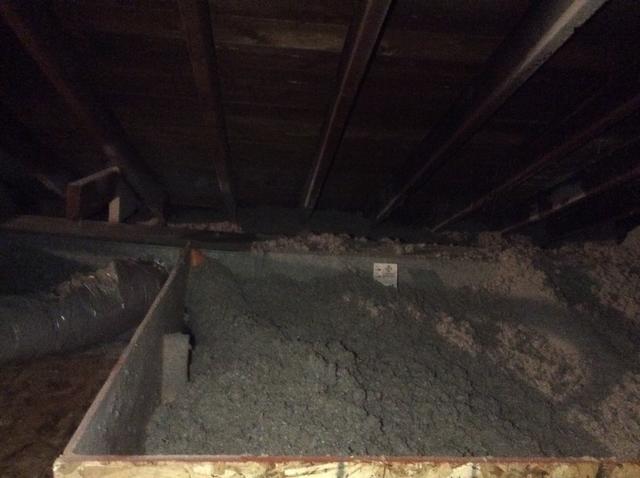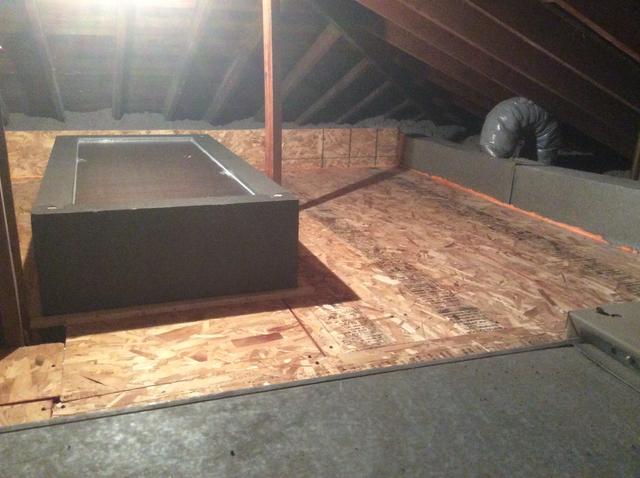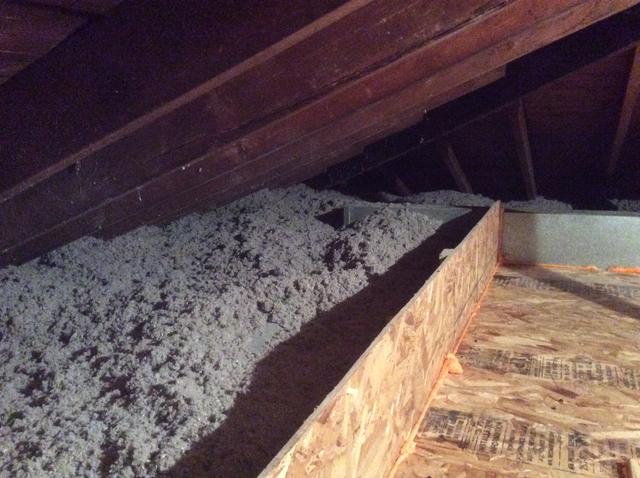Challenge
The customer called in about the attic being cold and wanting a permanent solution. Our comfort specialist Rob was able to come out to assess the situation and draw up a plan of action. After some calculations and running some tests to compile the necessary information, Rob was able to present the customer with the permanent solution the customer was looking for. Rob went over all the details of the job with the customer, and we were able to come back and complete the necessary work. The customer noticed immediate results and is on their way to a more comfortable house with lower energy bills as well.
Solution
Charlie and Gio were able to come back and start the insulation. We started by removing and disposing of existing fiberglass insulation in the attic. We then Installed a layer of 4'' SilverGlo along the attic deck then cover it with a 3/8'' board to provide an insulated storage platform - install vertical insulation retention dams to hold blown-in insulation in place. Air Seal and Insulate 'traditional' attic assembly according to repair #A1-1 by closing all accessible penetrations and top plates using expanding polyurethane foam and then blowing in approximately 17" TrueSoft cellulose insulation. Install one David Lewis attic hatch cover over the attic stairs.
Project Summary
Comfort Advisor: Robert
Lead Installer: Charlie
Installer: Gio
Installer: Odin


